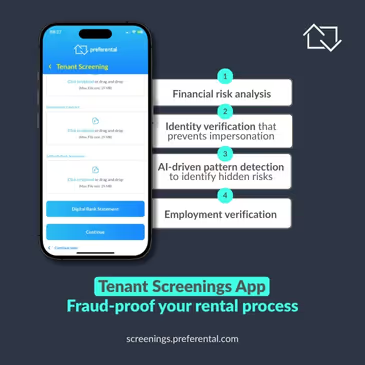Five legal must dos to avoid costly rental disputes
- Bad leases and sloppy notices kill eviction cases, get the paperwork right.
- CPA timelines trump your lease; inspect and evidence everything.
- Hold sufficient deposits and apply deductions only with proof, beyond fair wear.
South Africa’s rental market is busy again, but legal friction hasn’t gone anywhere. Unpaid rent, contested deposits and repair disputes still ambush even seasoned landlords and agents. The twin killers are non-compliant paperwork and missing evidence.
At a recent PayProp Masterclass, attorney Johan de Bod (Koegelenberg Attorneys) and Sarah Fourie (PayProp) unpacked what actually stands up in practice and where portfolios lose cases they should win.
“A weak lease is one of the fastest ways into legal hot water,” says Johan de Bod. “Too many landlords rely on incomplete or outdated templates.”
“It’s not just about holding deposits, it’s about holding sufficient deposits,” adds Sarah Fourie of PayProp. “Monitoring the health of your deposit pool is essential protection.”
Below are five essential legal tips, practical, tested, and aligned with the Rental Housing Act and Consumer Protection Act (CPA).
1. Make the lease your strongest shield
A tenancy rises or falls on the lease. If clauses are vague, contradictory or unlawful, the law wins and your clause is binned. Use a current, SA-compliant lease with:
- Maintenance & alterations: who does what, approval processes, timelines.
- Deposits: amount, interest, permissible deductions, refund timelines.
- Inspections: incoming and outgoing procedures, joint sign-off, evidence.
- Breaches & notices: addresses for service, delivery methods, cure periods.
De Bod: “A strong, compliant lease protects both sides and often prevents disputes from ever escalating.”
Pro move
Review leases annually; align with latest case law and CPA wording. Kill copy-paste clauses that contradict statute.
2. Arrears? Serve a proper Letter of Demand
WhatsApp nudges don’t cut it. Courts want a legally compliant Letter of Demand delivered to the domicilium stated in the lease.
- The CPA gives tenants 20 business days to remedy a breach even if your lease says seven. If you ignore CPA timelines, you torpedo your case.
- Keep a clean trail: rent-due reminders, breach notices, delivery proof.
Fourie: “PayProp users can issue a Letter of Demand **from the platform for R125 (recoverable from the tenant).”
She adds: “Koegelenberg Attorneys offers a fixed-fee eviction from R18,500 (excl. VAT/disbursements), keeping costs predictable.”
Pro move
Template your demand letters, automate arrears workflows, and always attach the statement of account.
3. Tackle habitual late payers, fairly and lawfully
Some tenants pay on day 19 of 20 every month. Cashflow carnage, but technically cured. Your tools:
- Repeat-breach clauses that trigger early termination rights if lateness recurs (draft carefully and fairly).
- Shorter fixed terms or no automatic renewals to avoid long tail risk.
- Transparent warnings and records of patterns.
De Bod cautions that a blanket “landlord may terminate at will” clause hasn’t been fully tested by SA courts, get specialist drafting.
Remember: under the CPA, a tenant may end a fixed-term lease on 20 business days’ notice. You may levy a reasonable cancellation penalty reflecting actual loss (e.g., advertising, a month’s vacancy) not the full balance of the lease.
4. Never skip inspections your evidence lives here
Incoming and outgoing inspections are legal requirements. Without them, a tenant can claim a full deposit refund even if there’s damage.
- Do joint inspections; capture date-stamped photos/videos; complete and sign condition reports.
- Separate fair wear and tear (faded paint) from damage (deep scratches on timber flooring).
Pro move
Store inspection packs centrally (photos, reports, signatures). If you can’t show it, you can’t deduct it.
5. Handle deposits correctly and size them for reality
By law, deposits must be held in an interest-bearing account for the tenant’s benefit. Deductions are limited to unpaid rent/utilities and provable damages beyond fair wear.
Fourie: “Aim for 1.5 - 2 months’ rent where possible. PayProp’s Rental Index shows the average damage deposit at 1.31× monthly rent, better than one month, but still thin at the upper end.”
- Provide a final statement itemising deductions with invoices/quotes.
- Refund the balance within statutory timelines.
Pro move
Stress-test deposits against typical repair baskets by property type; adjust your standard ask accordingly.
Why disputes spike and how to avoid them
- Non-compliance with CPA timelines - cases struck.
- Service to wrong address - notices invalid.
- No inspection evidence - no lawful deductions.
- Template leases with illegal/ambiguous clauses - unenforceable terms.
- Undersized deposits - landlord under-insured for damage.
Process wins, not bluster
This isn’t about being “tough”, it’s about doing things right. A compliant lease, disciplined notices, watertight inspections and correctly handled deposits turn disputes into process, not panic.
Playbook recap
- Modernise leases - annual legal review, CPA-proof breach wording.
- Automate arrears - CPA-compliant Letters of Demand, delivery proof.
- Design for repeat-breach fair early-termination mechanics, shorter terms.
- Evidence everything joint inspections with signed, time-stamped media.
- Capitalise deposits hold enough, earn interest, itemise deductions.
Do this and you won’t just win more disputes, you’ll have fewer. As De Bod notes, “Clarity prevents conflict.” And as Fourie reminds us, portfolios protected by process outperform over time.













.avif)


.avif)

.avif)




.svg)





























.avif)
